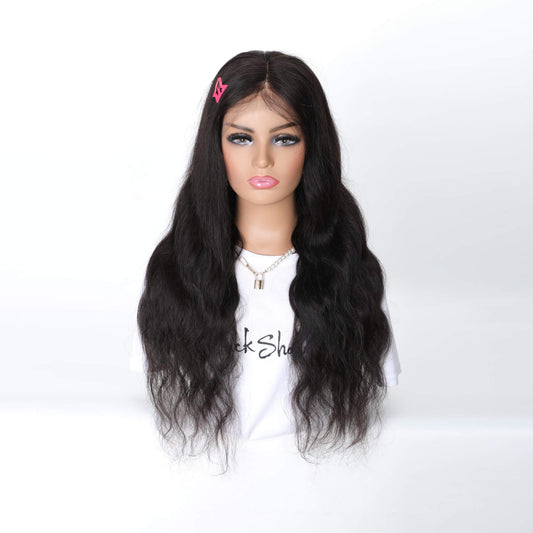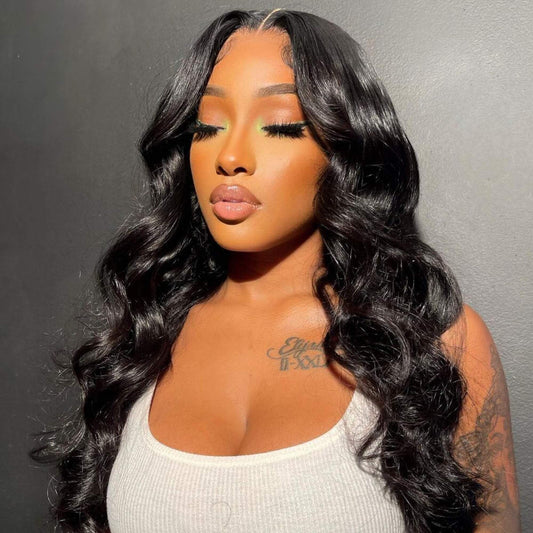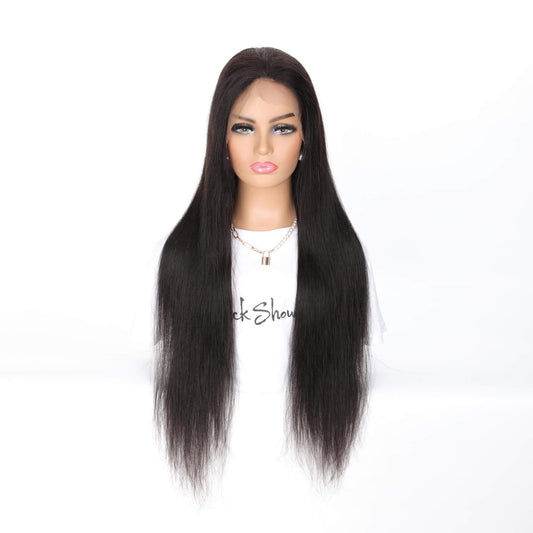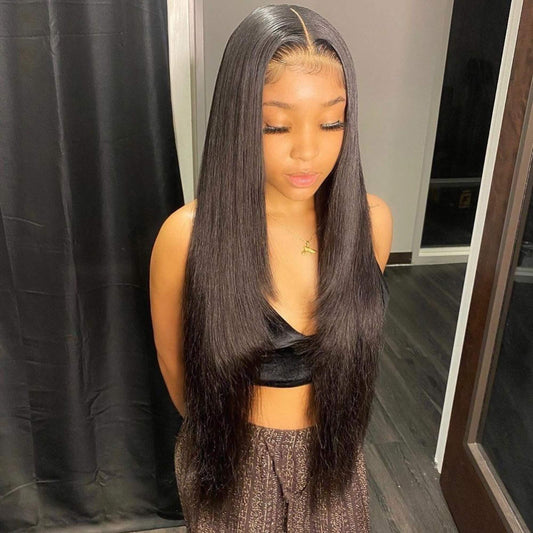Everything About The Quick Weave with Closure
All about Closure Quick Weaves
There are various types of extensions and closures are known to be one of the ultimate protective styles for your hair. They offer complete coverage for your scalp, which means more protection for your natural hair.
Quick weaves are becoming a huge trend in 2019, in such a short amount of time. It’s a cheaper, less time consuming option to a sew-in-weave. Due to the quick popularity, many women have questions all though this technique has been around for a long time.
If you are one of these women, and would like to learn more about closure quick weave, keep reading!
What Is A Quick Weave?

A quick weave is the method here the hair wefts are glued onto a protective cap or hardening gel, that will be placed on top of your head. A protective cap is placed over freshly washed and cornrowed hair. The cap provides coverage from the glue residue, the hair wefts are then cut and glued onto the cap. The hardening gel can also mold and hold down the hair for those who want to avoid cornrows.
Quick weaves are done professionally and at home, the process is fairly easy and quick. The closure quick weave ultimately offers full coverage, protective styling, and a time saver.
How Long Does Closure Quick Weaves Last?
Quick weaves generally last up to 3-4 weeks. Making sure you cover your hair with bonnets or silk scarves, which reduces friction, which ultimately reduces tangling. If you have curly weave, try pin curls, pineapple ponytails, or rollers to maintain your curls.
How Do I Remove A Quick Weave?
Quick weaves are one of the easiest protective styles! Taking them out are no short of the easy train. Began by massaging oil or any oil-based hair conditioner into your hair, allowing it to sit for a few minutes. The oil caused the glue to loosen and began to unravel, which allows you to remove your tracks easily. Rinse your hair thoroughly afterward and comb through with a wide tooth comb.
Can You Wash Your Quick Weave
You can wash and use hair care products on your quick weave hairstyle carefully. Be sure not to use anything oil based this will loosen the glue and will cause your tracks to slide out.
Does Quick Weaves Damage Your Hair?
There a various methods when doing a quick weave, however the liquid cap method and stocking cap method are amongst the most popular. They are most popular due to the ability to be safely done with no hair damage! The liquid quick weave method works best with shorter hair types, who cannot braid their hair into cornrows.
The stocking cap method is perfect for the longer hair ladies.
Cutting Your Hair Wefts
When cutting the hair wefts, be sure you measure the back of your nape first going from ear to ear to ensure proper length.
Best Hair For A Quick Weave
The best hair for quick weaves are the lower cost hair bundles due to the cutting of the wefts and quick weaves are not worn long. Regardless, if you are looking for human hair extensions, it’s a good option to achieve the look. With human hair, you can do more than synthetic hair extensions.
Items Needed For A Quick Weave
-
Hair bonding glue A.K.A molding gel (Optional)
-
Hair glue
-
Scissors
-
Wig cap ( natural hair color or nude to match scalp color )
-
Wig clips
-
Blow-dryer
How To Do A Closure Quick Weave?

Step One: Wash and cornrow hair down in suitable pattern for where your part will be. If you are opting for the hardening gel, use the gel to lay your hair down as flat as possible creating a low ponytail.
Step Two: Place your stocking cap onto your hair, which makes it easier for you to remove the quick weave.
Step Three: Tweeze and pluck hairline of your closure prior to cutting lace closure. Take out baby hairs if that’ your preference to look more natural.
Step Four: Cut lace off of your closure, do not cut it straight, try cutting in a zigzag motion.
Step Five: Now, measure where your closure should stop on your hairline,place a marking where you want it to stop.
Step Six: Pull stocking cap on and above the line.
Step Seven: Outline closure section with bonding glue
Step Eight: Glue on closure
Step Nine: Measure where first track will lay, from ear to ear, cut and glue on.
Step Ten: Continue doing so throughout your head.
How To Create A Deep Side Part Quick Weave
Step One: Comb through hair and cornrow
Step Two: Apply stocking cap
Step Three: Glue hair onto stocking cap
Step Four: Blow Dry
Step Five: Continue this until you’ve reached your leave out, and cut your cap so your natural hair is exposed.
Step Six: Cut hair according to the type of bob you’d like
Step Seven: Flat iron hair section by section while using hairspray to get rid of the flyaway.
Advantages And Disadvantages Of Quick Weaves
Advantages
-
Easy to maintain and low maintenance
-
Allows a break from hot tools and chemicals on your real hair
-
Easy to remove for women who loves variety and the ability to change hairstyles often
-
Does not damage natural hair
-
Can accomplish a range of styles
Disadvantages
-
If you do not use a protective sealer over the scalp, the glue can attach to your natural hair.
-
Possible damage to your hair extensions. Your extension can have dry clumps of glue if not careful.
-
This hairstyle install does require some patience for the glue to dry in between placing the next track.
-
Cutting your hair wefts will increase shedding, vs a traditional sew-in using the flip over method.
Tips To Nail Your Quick weave

We know trying something new is really nerve wrecking, but rest assured that this style is everything! If you are nervous about applying or using this style, try opting for a professional hairstylist so you can ask questions and get the reassurance you will need.
Make sure not to extend past the 4-5 week mark, due to your natural hair needing breath, be washed, and conditioner. Also, leaving your quick weave in past the recommended weeks can cause scalp irritation, hair loss, and hair breakage.
Quick weaves are versatile and fun; do not be afraid to try them out!





